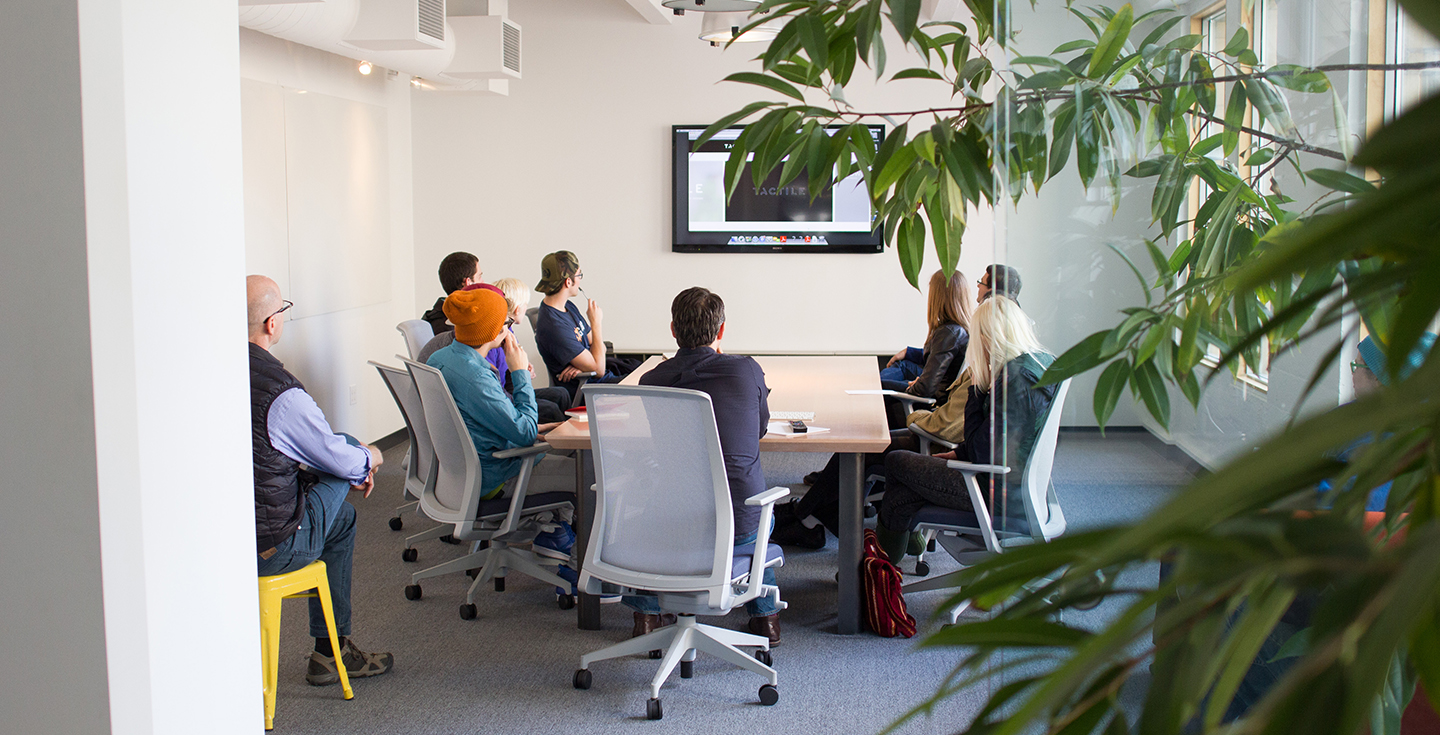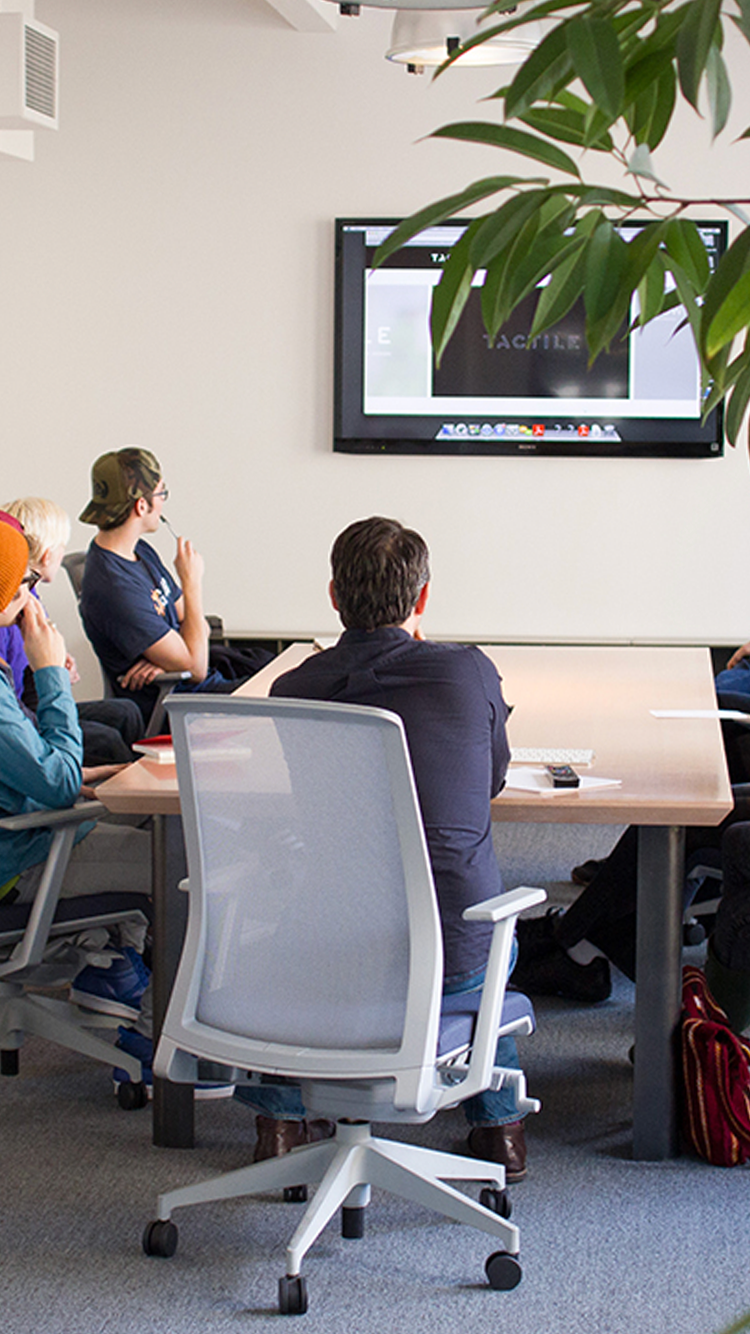

WWU ID Junior Projects
May 6, 2016Three of Tactile’s designers (Jonah Griffith, Adam Weisgerber, and Carson Massie) partnered with their alma mater, Western Washington University (WWU), to mentor students in the school’s industrial design program.
The students were given an open-ended prompt: Design something that would move a single person from one place to another, as an alternative to other typical methods like cars or bikes.
Students identified three initial directions they could take their concepts, then created sketches. They broke into teams to complete research, where they met the Tactile team for the first time. Adam, Jonah, and Carson critiqued the concepts and suggested to each student which path to take, given the time available and the idea itself. During the meeting the students presented their research findings. “That’s typical of what we do in our projects at Tactile,” Jonah says. “We’ll try to research enough to understand the market, doing competitive research and usability research.”
After students chose their initial idea, the Tactile team met with them over the span of two months at different intervals to review their progress and provide mentorship. Jonah describes their goals this way: “What we really wanted them to get out of the project was a portfolio piece—or learn how to build a portfolio piece. A big part of that is having a concise and easy-to-understand story at the end. We told them, ‘Try to have a real story behind it, whatever idea that you’re trying to get across.’”
Professors want to make sure that students see what it’s really like out in the professional world. When students visited the Tactile offices, they were able to get a sense of the professional industrial design world waiting for them after graduation.
“We shared with them the work that we do,” says Adam. “The goal is to strengthen and broaden the network of industry designers in our local area, especially so there’s some sort of networking between students and professionals.”
“It feels good to have a chance to give back a little bit to students, because we were once students,” he says. “It allowed them to have a chance to maybe have a leg up; to offer our experiences to them, so that it may be easier for them when they’re trying to get a job.”